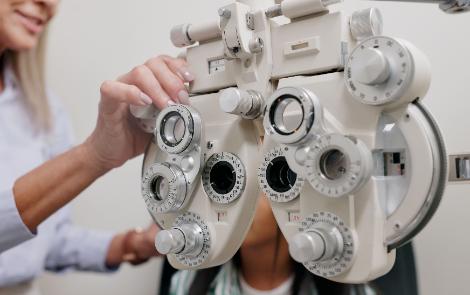Our team is dedicated to providing comprehensive care for all your ocular needs. Among the common issues we address is refractive error, a condition that affects millions worldwide. Let’s guide you through understanding, diagnosing, and treating refractive errors for a clearer vision and a brighter future.
What is refractive error?
Refractive error is a common eye disorder that occurs when changes to the shape of the cornea, lens or whole eye prevents light from focusing directly on the retina. This results in blurred vision, making it difficult to see objects clearly at various distances. Refractive errors include myopia (nearsightedness), hyperopia (farsightedness), astigmatism, and presbyopia, and the type of refractive error you experience depends on the shape of your eye.Symptoms of refractive error
Recognizing the symptoms of refractive error is crucial for timely intervention. Individuals with refractive errors may experience:- Blurred vision at any distance
- Difficulty seeing objects up close or far away
- Diplopia (double vision)
- Eye strain or discomfort, especially after prolonged visual tasks
- Headaches, particularly after focusing on nearby objects for an extended period

If you’re experiencing any of these symptoms, it’s essential to schedule an eye examination promptly. Furthermore, it is important to continue with regular eye exams following diagnosis, as there will be an increased risk of other conditions such as glaucoma, amblyopia (lazy eye), strabismus (crossed eyes), or low vision.
Diagnosis and treatment
At Camas Prairie Eye Clinic, our experienced optometrists employ state-of-the-art diagnostic tools to accurately assess refractive errors. Through a comprehensive eye exam, including visual acuity tests and refraction assessments, we determine the type and severity of your refractive error. Once diagnosed, our team works closely with you to develop a personalized treatment plan tailored to your unique needs. Treatment options may include:- Prescription eyeglasses or contact lenses; corrective lenses are designed to compensate for the refractive error, restoring clear vision
- Refractive surgery; for eligible candidates seeking a permanent solution, procedures like LASIK or PRK reshape the cornea to improve focusing ability



